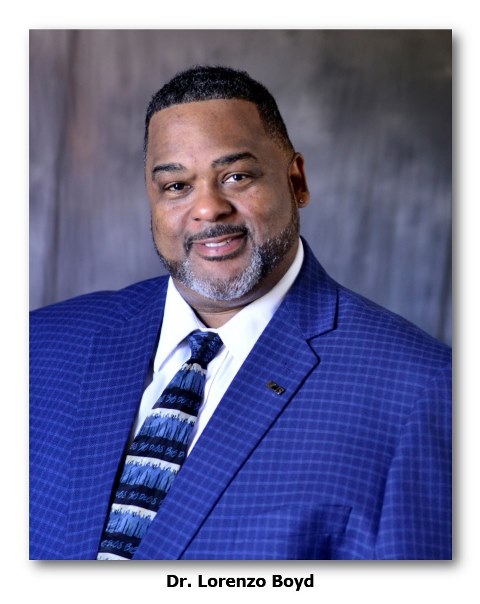
Friday, July 8, 2016
PRINCESS ANNE, MD – (July 1, 2016) – Dr. Lorenzo M. Boyd joins the University of Maryland Eastern Shore faculty today as chairman of its Department of Criminal Justice.
Boyd taught for the past three years at the University of Massachusetts Lowell, where he directed the master’s degree program as well as graduate certification in the School of Criminology and Justice Studies.
He’s been an educator for the 15 years, including seven at Fayetteville (N.C.) State University, where he oversaw its criminal justice graduate program and served as an academic adviser for the Fayetteville police department. He also taught at the University of North Texas in Denton and at Old Dominion University in Norfolk.
“I’m looking forward to shaping the direction of our criminal justice program,” Boyd said. “It’s not enough that students graduate. Employment is the ultimate success story.”
One area at UMES Boyd hopes to grow is making the university’s graduate curriculum more widely appealing to working criminal justice professionals, including those in the fields of policing, corrections, parole and probation.
“People who continue to work on and add to their credentials are crucial to making our communities safe and secure,” he said.
Boyd also was a senior researcher at the North Carolina Juvenile Justice Institute at North Carolina Central University in Durham, where he conducted program evaluations on local community-based juvenile justice intervention programs.
Prior to becoming an educator, Boyd was a Suffolk County, Mass. deputy sheriff for 12 years in his native Boston. During his free time, he worked in security for his hometown’s professional basketball team, rubbing elbows with Larry Bird and Robert Parish, among others.
Boyd earned his doctorate in sociology from Northeastern University in Boston, specializing in urban policing. His master’s degree is from the University of Massachusetts Boston, where his research explored the effectiveness of community corrections programs. His bachelor’s degree is from the University of Massachusetts in sociology and political science.
Over the past several years, Boyd has built and directed several graduate level and professional certificate programs. He created courses for criminal justice graduate and undergraduate degrees online and on-campus. He has developed several 40-hour police training modules and promotional assessments, and does consulting work with law enforcement agencies.
“I’m delighted to welcome Dr. Lorenzo Boyd as a new member of our School’s administrative team,” said Dr. Ray Davis, dean of UMES’ School of Education, Social Sciences and the Arts. “His strong professional background and leadership in the field of criminal justice will be assets in advancing the department to another level of excellence.”
Boyd currently serves as president of the 2,000-member Academy of Criminal Justice Sciences, the nation’s largest professional criminal justice organization. The academy is an international association established to foster professional and scholarly activities in the field of criminal justice. It promotes criminal justice education, research, and policy analysis within the discipline of criminal justice for educators as well as practitioners.
He travels later this month to England, where he anticipates talking with law enforcement counterparts about the United Kingdom’s pending split from the European Union and how it might affect safety and security in Europe and beyond.
The post 9-1-1 era in America has resulted in dramatic change in the landscape of teaching and training in criminal justice, Boyd said.
His research and teaching interests include urban policing, race and crime, criminal justice systems, diversity issues in criminal justice and criminological theory. He is also interested in exploring the effects of the method of delivery and type of assessment on student-learning outcomes.
“Criminal justice studies are crucial today because of the way the system is dealing with the community – especially communities of color,” he said. “There’s is a huge disconnect between the criminal justice system and the way communities are treated, we need to teach our students ways to bridge that chasm.”
“If things are going to change,” Boyd said, “We need to get students into being the practitioners who can fix the system from the inside.”
Crime mapping and data analysis are two other areas Boyd hopes to emphasize in the UMES curriculum as well as the role security in the private sector, which he said is a growing and lucrative field for well-trained criminal justice graduates.
UMES Office of Public Relations, (410) 651-6669

